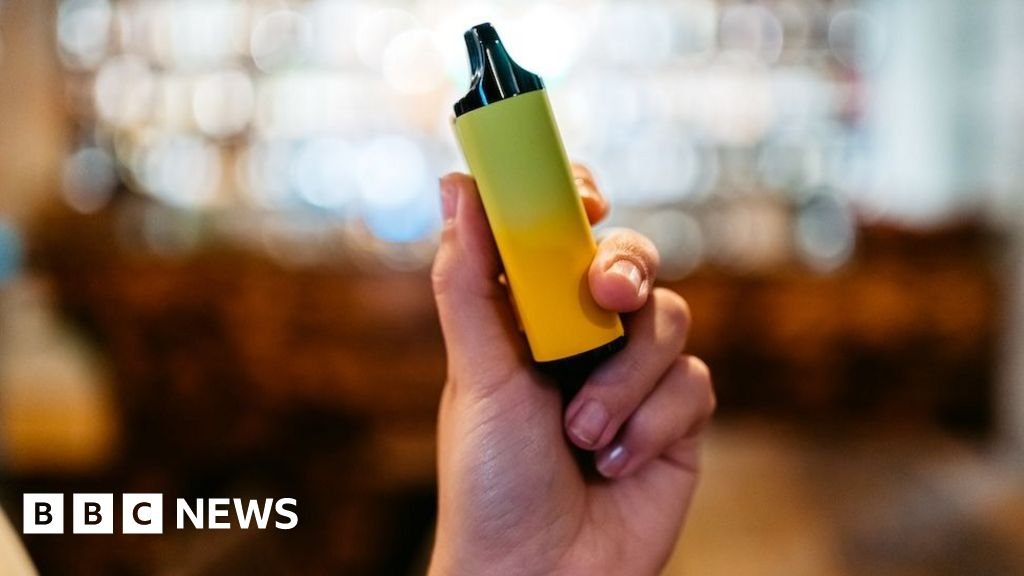The popularity of disposable e-cigarettes or vapes has fallen ahead of a UK-wide ban on their sale on 1 June, a study has found.
Researchers believe vape users are switching to refillable and rechargeable vapes in anticipation of the ban.
The percentage of people aged 16-24 who mainly use disposable vapes has dropped by nearly half in the last year from 63% to 35%, according to University College London (UCL) research.
Overall vaping use stalled between January 2024 and 2025 in all adults over 16, after several years of significant growth.
The UK government ban on disposable and single-use vapes is aimed at stopping littering as, in most cases, the vapes cannot be recycled and often end up in landfill or pollute natural environments.
The ban is also aimed at tackling rising rates of youth vaping and protecting children from harm.
The UCL study looked at survey data on vaping habits in England, Wales and Scotland both before and after the ban was announced.
The study used data from the Smoking Toolkit Study, which collected data on 88,611 people aged 16 and over.
Before the ban, between January 2022 and January 2024, vaping among those aged 16 and over went up from 8.9% to 13.5%.
In young adults aged 16-24, usage increased more sharply, from 17% to 26.5%.
After the ban was announced, researchers found a decline in the number of vapers mainly using disposable e-cigarettes – in all age groups and particularly among 16-24 year olds.
The study only asked vape users about their main choice of device.
Dr Sarah Jackson, who works for the UCL Tobacco and Alcohol Research Group and is the lead author of the survey, tells the BBC she thinks “more people are turning to refillable, reusable devices” rather than stopping vaping altogether.
“We often see people change their behaviour in response to impending policy changes before they come into action,” she adds.
Disposable vapes are single-use devices, which come pre-filled with vape liquid, whereas refillable and rechargeable (reusable) devices have a longer shelf-life and are often a cheaper way to vape in the long-term.
A reusable vape has vape liquid that can be refilled and a battery that can be recharged.
Dr Jackson adds that vape manufacturers have also been quick to react to the upcoming ban, with “the most popular” disposable brands producing rechargeable versions of their most popular models.
“They’re very similar in design, colours, flavours and even price,” she says.
While Dr Jackson thinks it’s too early to tell whether the government’s new strategy will deter young people from vaping, she maintains that health legislators face “an issue of balance”.
“We know it makes sense to do something to try and reduce the vast numbers of young people taking up vaping, but the key public health priority here does remain smoking,” she says.
“This is vastly more harmful and is killing a lot of people every year, so we need to make sure that any policy measures that are brought in to tackle youth vaping don’t put people off using vapes, which are very effective at quitting smoking,” she adds.




